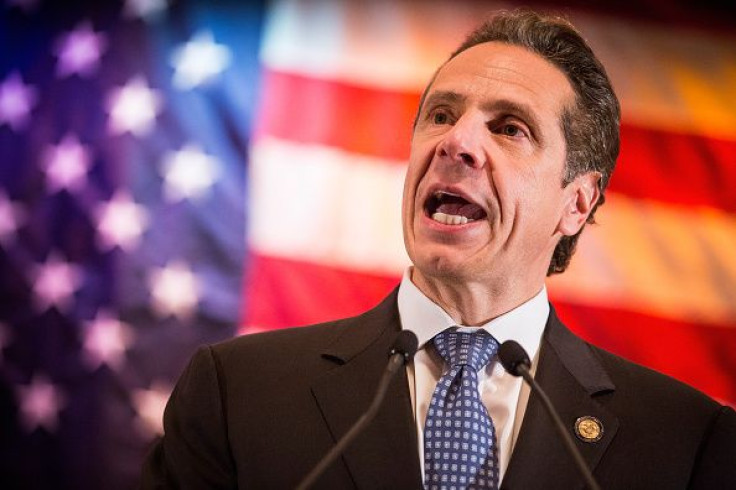New York Gov. Andrew Cuomo's Donors Get More State Bond Work

New York Gov. Andrew Cuomo’s administration is undeterred. Despite revelations last week that the governor’s officials have steered state housing bond work to his campaign contributors in apparent defiance of federal pay-to-play rules, New York state officials on Friday announced they are giving those same donors even more lucrative business -- this time on a massive new transportation revenue bond. The announcement of the deal -- which was not competitively bid -- comes as a top compliance lawyer in Washington, D.C., suggested that the deal between Cuomo's administration and the governor's donors may run afoul of the federal rules.
According to a prospectus released Friday afternoon, the state’s Metropolitan Transportation Authority (MTA) has designated JPMorgan, Citigroup and Bank of America to help manage a new $225 million bond. The deal was given to the firms without competitive bids, according to MTA spokesperson Adam Lisberg. As International Business Times has reported, the political action committees of those three financial institutions have given the Democratic governor more than $132,000 in campaign contributions since 2012, and the same three banking groups have been given work by Cuomo’s housing agency on 27 separate bonds worth more than $3 billion.
A rule of the federal Municipal Securities Rulemaking Board (MSRB) prohibits bond work from going to financial firms that make campaign contributions to public officials who control bond decisions. Cuomo appoints the head of the state housing agency that gave the firms housing bonds, and he nominated four of the board members of the MTA -- including its CEO -- who made the decision to direct the transportation bond work to the three firms.
MTA spokesperson Adam Lisberg told IBTimes that the agency does not monitor whether campaign contributions are flowing to the governor from firms that get the agency's bond work because, he said, the onus is on the banks to comply with the rule. And although Cuomo helped select the MTA board members, Lisberg also said the agency does not "ask the underwriters to disclose any such contributions, because no elected officials play any role in our selection of underwriters."
The banks have said they are in compliance with the federal rule because even though they control the PACs that made the contributions to Cuomo, their specific executives who oversee bond work did not make contributions to those PACs.
"The federal law you cited concerns those doing the work, which in this case are the brokers, not the affiliated banks that operate independently," said Rich Azzopardi, a Cuomo spokesperson, echoing the banks' view. "These brokers do not control the political action committees."
The banks declined IBTimes' request for the identities of their bond brokers and bond executives, making it impossible to verify their and Azzopardi's claims. Azzopardi did not respond to IBTimes' questions about whether the banks had provided him or the governor with that information, so it's unclear whether the Cuomo administration itself was able to check the banks' compliance.
Whether or not specific municipal bond executives gave to the specific PACs, though, may be a moot point: Regulators and ethics experts note that the rule covers “any political action committee controlled” by the bond dealer. The PACs that made the contributions are run by the companies.
On Sunday, Washington attorney Stefan Passantino, who runs the political compliance division of McKenna & Long, published an article at the Pay To Play Law Blog saying that regulators have established "that this is not an area where winks and nods will be tolerated." He added that he and other compliance attorneys have been warning for years that PACs are "an improper vehicle to circumvent [the rule]."
News of the new bond deals for Cuomo donors was slammed by Michael Kink, the executive director of the Strong Economy for All Coalition, which has criticized Cuomo’s ties to the financial industry.
"It's not the first time we've seen this kind of hubris from the big players in Albany," Kink told IBTimes. "Even as the investigations swirl, they just won't stop the sketchy deals and bad behavior. "
© Copyright IBTimes 2024. All rights reserved.












